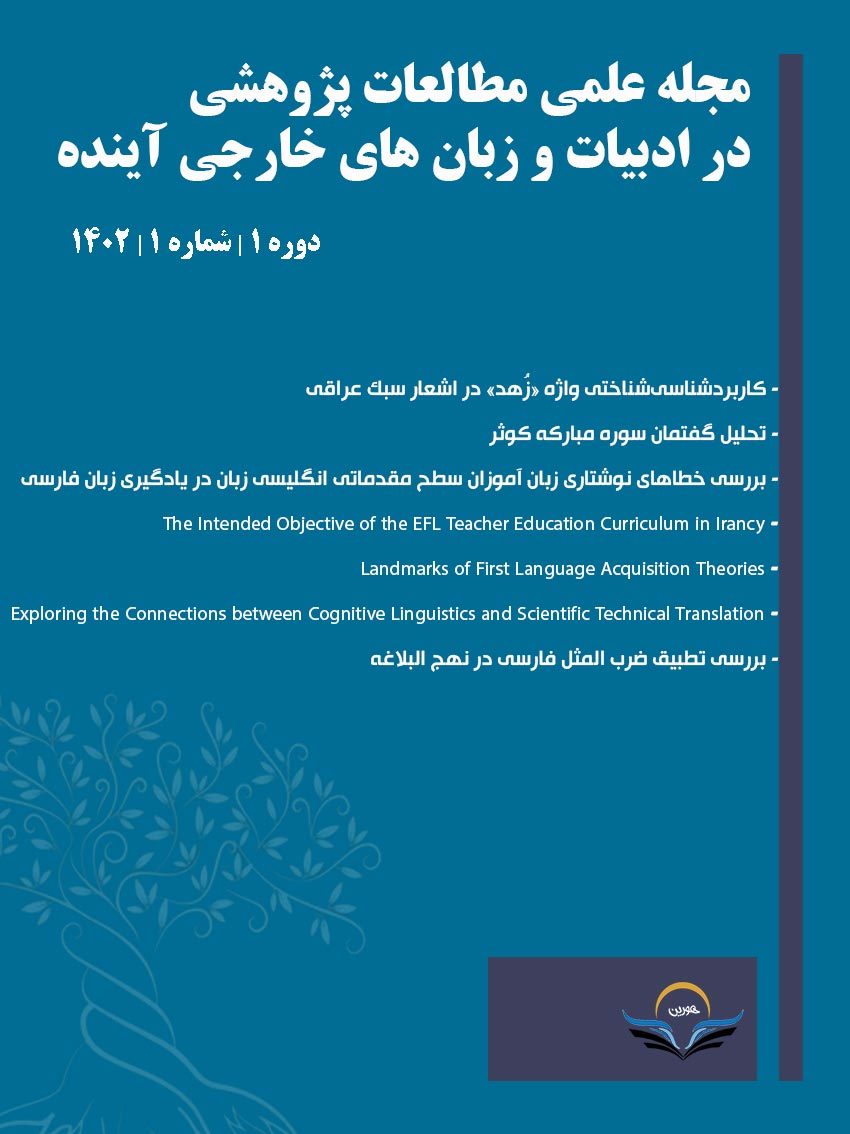شاخصه های نظریه های فراگیری زبان اول
کلمات کلیدی:
رفتارگرایی, ارتباط گرایی, اولین فراگیری زبان, تعامل گرایی, ذاتی بودن, اورژانس گراییچکیده
یادگیری زبان یک فرآیند رشد طبیعی و منحصر به فرد انسانی است که بر اساس آن کودک زبان مادری خود را به عنوان زبان اول می آموزد. ساده ترین نظریه رشد زبان این است که کودکان با تقلید از زبان بزرگسالان زبان را یاد می گیرند. احتمال دیگر این است که کودکان زبان را از طریق شرطی سازی یاد بگیرند. چامسکی فرضیه ذاتی بودن زبان را مطرح کرد. پیاژه معتقد بود که زبان یک فرآیند شناختی و محصول رشد هوش عمومی است. به گفته ویگوتسکی، اگرچه کودکان مبنای شناختی برای یادگیری زبان دارند، رشد زبان برای بیان کارکردها است. در نهایت، پیوندگرایان معتقدند که کودکان حتی بدون درک قوانین یا حتی بدون قوانین، زبان را یاد می گیرند. برخی از تلاش ها برای پیوند دادن رشد زبانی و شناختی به استفاده از مراحل پیاژه ناموفق بوده است. پیشرفت های عمده ای در درک زبان و رشد شناختی حاصل شده است، اما این پیشرفت ها رابطه نزدیکی را نشان نداده اند. با توجه به وضعیت دانش امروزی، نمی توان یکی از نظریه های مختلف را به طور قطعی انتخاب کرد. منطقی به نظر می رسد که بگوییم ترکیبی از مهارت های تقلید، ابزارهای یادگیری زبان ذاتی، رشد شناختی و تعاملات ارتباطی اجتماعی به رشد زبان کمک می کند. این مقاله مروری بر نظریه های رشد و یادگیری زبان در کودکان است.
دانلود
چاپ شده
شماره
نوع مقاله
مجوز
حق نشر 2023 مجله علمی مطالعات پژوهشی در ادبیات و زبان های خارجی آینده

این پروژه تحت مجوز بین المللی Creative Commons Attribution 4.0 می باشد.





